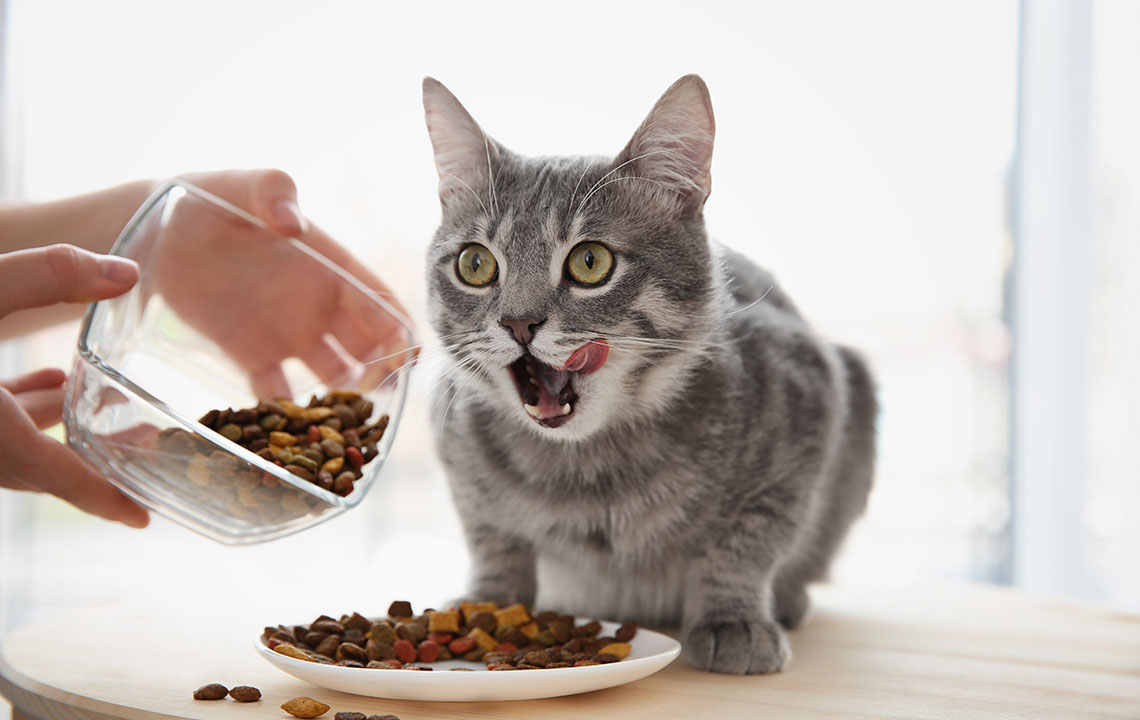Choosing the Right Food for Cats with Sensitive Skin
As a cat parent, one of the greatest joys is watching your pet healthy and jovial. There is no greater pleasure than gently running your fingers through their soft and shiny coat of fur. But, like humans, your furry feline may be also prone to sensitive skin. It may not seem like a major issue, but it can have serious repercussions.
Sensitive skin can be caused by several factors like allergies, hormonal imbalance, genetics, infections, and parasites. Several times, your cat may be exposed to dust, mold, and pollen for long periods. Parasites such as mites, lice, and fleas can also lead to skin irritation and, in turn, result in sensitive skin. A hormonal imbalance in your cat may also be caused by skin sensitivity; additionally, bacterial infections can cause and worsen the condition in cats. Irrespective of the cause, feeding your cat food that is specially formulated for sensitive skin can aid in combating the condition. Before you choose the best cat food for sensitive skin, here are some factors that will help you narrow down your optons.
Does your cat have sensitive skin?
One of the best ways to check on your cat’s skin health is by ensuring that it is smooth, soft, and doesn’t flake off. Skin sensitivity will typically cause noticeable redness and irritation. There may also be red patches, pimples, and darkened spots on the skin. Also, lookout for scabs and thickened skin that is coupled with hair loss. You will often find your furry feline itching and scratching that area. There may also be incessant licking and rubbing of the paws.
Best course of action
Some essential things to do if you think that your cat has sensitive skin are
- Check for parasites
Parasites may be hidden in the coat of cat. It is best to examine your cat’s skin and coat and check for any presence of pests such as fleas, mites, and ticks. Appropriate treatment must be sought to get rid of the same as they can trigger or worsen your pet’s skin sensitivity. - Consult your veterinarian
If any of the possible signs are noticed, it is best to consult your veterinarian who will effectively diagnose the condition. While you may think that your cat has skin sensitivity, there may often be underlying factors that can be much more severe. Working with your veterinarian will provide the best treatment options and cat foods that keep the skin sensitivity under control.
Importance of special foods for cats with sensitive skin
The food that you feed your cat will go a long way in ensuring the well-being not just of your pet’s skin but overall health as well. Irrespective of the causes, high-quality foods that are specially formulated ingredients will ensure good skin health. A balanced meal that eliminates certain types of sensitivity-trigger foods will help in minimalizing the effects of the skin condition. Recommendations from your veterinarian will help in deciding on the best formulations for your pet.
Important nutrients to look for in cat food for sensitive skin
Unlike most skin conditions that occur cats, sensitive skin requires lifelong management. Fortunately, it can be helped with feeding it the right types of food. Some of the most essential nutrients to look for when choosing cat food for sensitive skin are
- Essential fatty acids
Fatty acids such as omega-3 and -6 should be important inclusions to check for when choosing food for sensitive skin. The fatty acids are naturally found in several foods such as fish oil and aids in nourishing the layers of the skin. This, in turn, combats inflammation and dryness lead by sensitivity. - Proteins
One of the building factors for treating damaged skin is protein. Good amounts of high-quality protein will prevent the effects of sensitive skin and maintain good dermal health. Some of the best sources of protein for feline are duck and venison meat. These sources reduce the possibility of skin reaction from sensitivity while also reducing the intolerance to other types of ingredients. - Antioxidants|
Antioxidants and vitamin E promote better health of your cat’s immune system. Maintaining a healthy immune system is vital in keeping the skin issues and sensitivity under check.
The right combination of the abovementioned nutrients in your cat’s food will effectively help in helping with their skin condition. Your veterinarian will recommend other essential nutrients that will help perfectly fit the diet requirements of your cat.



